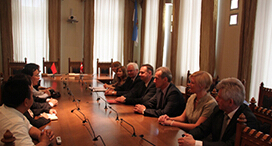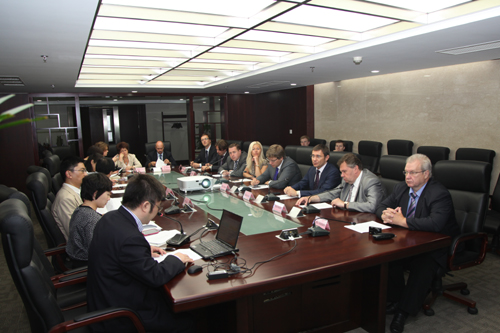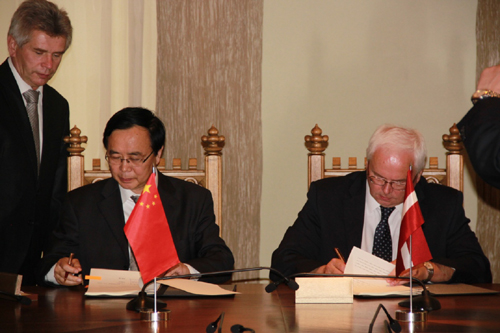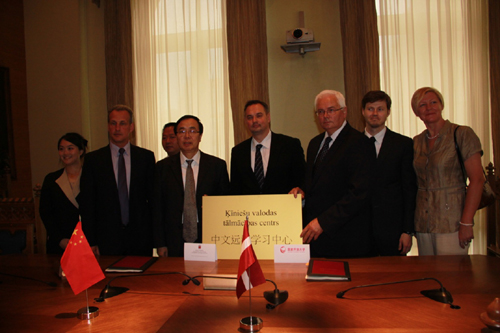 Brief Introduction:
Brief Introduction:
As one of the three Baltic states, Latvia is home to rich cultural and tourism resources. Riga, which lies on the Gulf of Riga, is the capital city and a major political, economic, and cultural centre of Latvia. It is also one of Beijing’s “friendship cities”. The role of the Riga City Council’s Education, Culture, and Sports Department is to implement policies in the fields of education, culture, and sports as well as monitoring the operation of various educational, cultural, and sports and leisure institutions under the jurisdiction of the Riga City Council.
Cooperation with the OUC:
On June 25, 2012, Nils Ušakovs, mayor of Riga, led a delegation to participate in the Global Mayors’ Forum hosted by Beijing Municipal Government and visit the Open University of China (OUC) as an invited guest. Deputy Party Secretary Zhang Shaogang and other OUC directors met with the delegation. The two sides held talks and achieved an initial intent of cooperation in the areas of Chinese language learning, joint research, teaching resource exchanges and so forth, followed by in-depth discussions between the OUC and Riga City representatives in Beijing about the cooperation content and format.

Invited by the Riga City Council’s Education, Culture and Sports Department, Zhang Shaogang led a delegation to visit Riga City in late May, 2013. On May 28, Zhang Shaogang signed a cooperation agreement with Guntis Helmanis, director of the Riga City Council’s Education, Culture, and Sports Department at Riga City Hall. The two sides also attended the unveiling ceremony of the first Chinese distance learning center in the Baltic region, of which they are co-founders. Riga City Executive Nils Ušakovs also attended the unveiling ceremony and gave a speech at the ceremony.

According to the agreement, the two sides will cooperate on Chinese distance learning for adults and teenagers, based on the newly built Chinese distance learning centre and the OUC’s MyEChinese distance teaching platform, course resources, and cloud-based classroom. In addition, the OUC will provide practical opportunities and work-study programmes for overseas students, in order to better combine language learning with cultural experiences. The agreement also states that the two sides should make full use of the new Chinese distance learning center to promote joint projects with other Baltic and Nordic countries.

The agreement also calls for cooperation in the areas of teacher training, ICT for educational application, community education, and cultural exchanges.